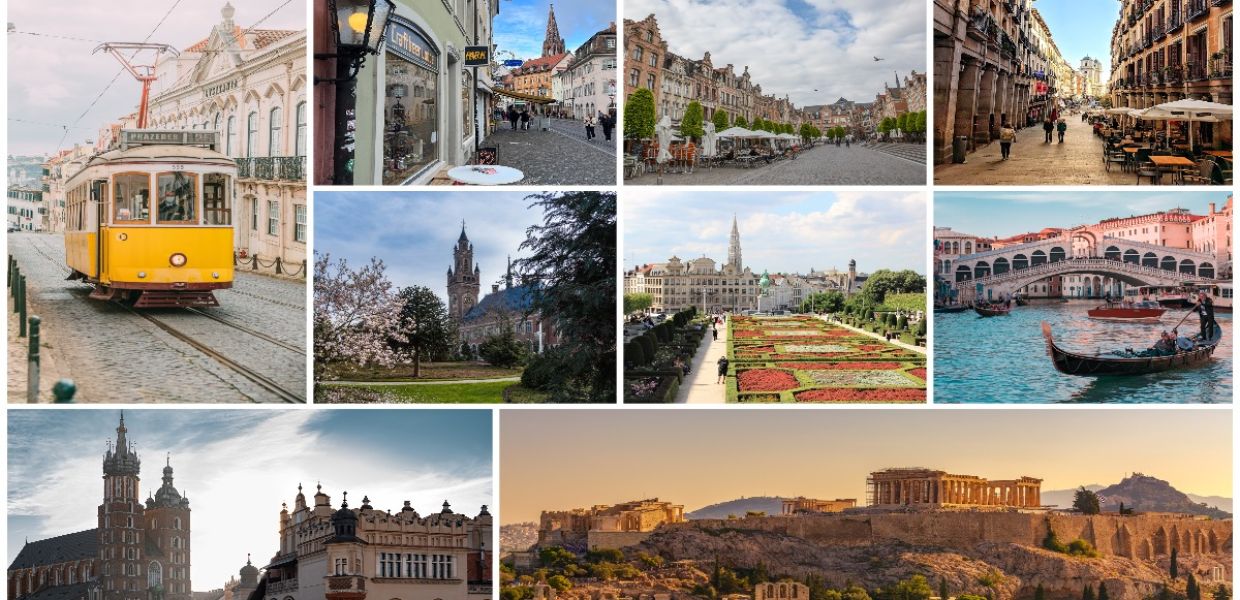The European Heritage Hub will gather top expertise and pool resources to establish the largest-ever cultural heritage-driven movement. The pilot project, funded by the European Union, will run for two years (Spring 2023 - Spring 2025). It will establish and develop an autonomous advocacy and knowledge platform bringing together a large array of cultural heritage stakeholders, contributing to a more sustainable, innovative and inclusive future for the cultural heritage sector.
The project will also foster synergies and cooperation between existing heritage initiatives and actors, and create new ones when relevant. The European Heritage Hub will be at the forefront of heritage policy development at all governance levels and will support heritage professionals and volunteers in acquiring the necessary skills to adapt to our society’s transformation and build resilience.
The project will actively engage the extended networks of all partners (see list below). Ultimately, it will reach out to citizens at large, with a special emphasis on the younger generation of heritage students and professionals, to carry on the legacies of both the European Year of Youth 2022 and the European Year of Cultural Heritage 2018, and contribute to the European Year of Skills in 2023.
'Heritage is not only a common treasure to protect, but also an asset for the green transition of our societies. Europa Nostra has developed over the last decades a unique experience allowing heritage to be protected and to play a pivotal role for the greening of territories. The pilot project establishing a European Heritage Hub will bring concrete means to the consortium to make a positive impact at local level. I would like to congratulate all members of the consortium for their commitment in a new endeavour!' said Mariya Gabriel, European Commissioner for Innovation, Research, Culture, Education and Youth.
'The Europeana Foundation is proud to be among the partners tasked by the European Commission to implement this ambitious initiative. We are delighted to once again join forces with Europa Nostra, and to start a close cooperation with new partners, to make the Hub a reality and a success. Through the European Heritage Hub, we are looking forward to empowering the heritage sector to effectively respond to the triple transformation of our society - digital, environmental and social - and its multiple challenges,' stated Harry Verwayen, General Director of the Europeana Foundation.
'Europa Nostra is very proud to act as coordinator of the setting up of a future European Heritage Hub (...). This is a most challenging task which we are glad to take on together with a fantastic group of European and regional partners. We shall seek to involve the widest possible range of heritage stakeholders, including members of the European Heritage Alliance and of the Climate Heritage Network and the young generation of heritage professionals. The European Heritage Hub should be beneficial to all! It will help us to further demonstrate the relevance of cultural heritage as a strategic resource for the future of Europe and as an invaluable vector for achieving many priority goals of the European Union and its key partners in Europe and beyond,' stated Sneška Quaedvlieg-Mihailović, Secretary General of Europa Nostra, coordinator of the pilot project.
In terms of implementation, the Europeana Foundation will play a key role in the areas of knowledge-sharing, networking, training and capacity-building, the setting-up and development of a Heritage Policy Lab as well as communication and dissemination efforts. Europeana’s network will have the opportunity to benefit from and contribute to the Hub’s multiple activities and to be part of its Europe-wide community of practice. Stay tuned for more!
Lead organisation and partners of the European Heritage Hub
On the basis of its extensive expertise and experience, Europa Nostra will take the role of the project leader. The project will bring together relevant partners, reflecting at the same time all levels of governance (EU, national, regional and/or local) and the priorities of the project (such as capacity-building, research, communication, etc.).
The key European partners (co-beneficiaries) of the project are
Europeana Foundation
Eurocities
KU Leuven
ICLEI - Local Governments for Sustainability
Other strategic partners of the project include:
Several associated partners will support the strengthening or creation of new regional heritage hubs, namely the Organisation of World Heritage Cities (based in Canada), the City of Kraków (Poland), the City of Athens (Greece) and the Directorate-General for Cultural Heritage (Portugal).
Other partners supporting the project are the European Students’ Association for Cultural Heritage (ESACH), the European Union Youth Orchestra (EUYO) and Generali.


